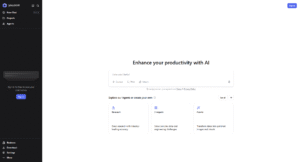AI Can Be Good Writer’s Tool
Earlier this year, fresh from another irritating encounter with what I call “AI Customer Disservice,” I would have written off anyone suggesting artificial intelligence (now so common you don’t need to capitalize the term) could be of value to writers or editors.
“Sure,” I would have scoffed. “We’re supposed to be friends with a tool that writes drivel and threatens to take food out of freelance writers’ and editors’ mouths?”
Until June, that didn’t just characterize the way I felt, it’s the way I treated AI: as something to be shunned.
I changed my tune while editing a pair of books for a longtime friend. He plans to soon self-publish two historical collections of his father’s writings.
Sometimes Useful
 As so often happens with historical minutiae, nailing down article titles, publications, and dates can be challenging. Three times, when I asked my friend questions during the editing, in his replies he mentioned using ChatGPT .
As so often happens with historical minutiae, nailing down article titles, publications, and dates can be challenging. Three times, when I asked my friend questions during the editing, in his replies he mentioned using ChatGPT .
That got me to thinking: a month earlier, Time magazine had offered subscribers a free year’s usage of its AI tool, You.com. Why not see if it could track down some of the information?
The answer—clearly it could. Not only did it help me with the more challenging history book, it proved more valuable in July, when I took on a different editing project.
The previously published author relied on some past research that proved faulty. Especially when it came to identifying specific months or timeframes for scholarly or news media articles.
In one case, You.com (which relies on a series of engines) not only provided the correct article title and date of publication, it provided the page numbers for the story. It was like finding a gold nugget.
Sometimes, You.com did not provide the information I needed, so I queried the free version of ChatGPT to uncover the elusive facts.
AI’s Value
In the midst of this awakening to AI’s value, a fellow freelancer mentioned running something through Copilot, the pesky Word intruder that I previously had treated as a nuisance.
One day I decided to test it out. I asked it to rewrite an article I had just drafted for a denominational publication. While mostly of little value, one paragraph Copilot revised did sound better. So, I used that graph in place of mine.
The second time I tried it, there was hardly any difference between my version and AI’s, meaning I often skip Copilot. But it’s still nice to know it’s there.
 However, You.com is proving so helpful with book and article research that I have often submitted questions about an important figure’s biography, scholarly work, or other details. Or to dig deeper into particular topics.
However, You.com is proving so helpful with book and article research that I have often submitted questions about an important figure’s biography, scholarly work, or other details. Or to dig deeper into particular topics.
The resulting answers come back much quicker (and in more detail) than with Google. When my free year is up, I may pay the $15 a month to retain its services.
Now, there are still reasons to dislike AI, starting with what I consider legalized thievery in building its systems. Then there’s the fact that more students are using it to cheat. And more people are using its shoddy workmanship in place of real professionals.
I have learned its research results are sometimes inaccurate, too. And any AI-generated articles, stories, or book drafts I have read could be described in one word: abysmal. Good freelancers have nothing to fear from it.
Still, don’t throw the baby out with the bathwater. AI can be a useful tool in the right hands.



